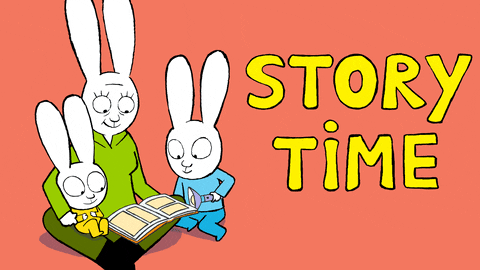A Comprehensive Guide to Storytelling in Content Marketing
Have you ever wondered why some brands effortlessly connect with their audience? You know, those brands that create content so engaging that you can't help but share it with your friends, family, and even your dog?
Well, I've got a secret to share with you: it's all about storytelling.
You read that right. Storytelling is the secret sauce that can transform your content from just another blog post into a powerful, emotion-driven experience that leaves your audience hungry for more.
In this article, we'll explore the power of storytelling in content marketing and share some tips on how to use it to your advantage.
So, buckle up and get ready to dive into the fascinating world of storytelling.

Once Upon a Time: The Historical Significance of Stories
Before we jump into the art of storytelling, let's take a quick trip down memory lane.
You see, storytelling is as old as humanity itself. Our ancestors used stories to pass down knowledge, share experiences, and form connections with one another. From ancient cave paintings to the epic tales of Homer, stories have always been a fundamental part of human culture.

And guess what? That innate love for stories hasn't changed a bit. Even in today's digital age, we're still drawn to narratives that captivate our imagination. That's why incorporating storytelling into your content marketing strategy is so important - it taps into the very essence of what makes us human.
The Essential Role of Storytelling in Content Marketing
Now that we've established the historical significance of stories, let's talk about why storytelling is such a powerful tool in the world of content marketing.
Stories have this magical ability to make complex ideas more accessible. And they evoke emotions. This makes it possible to create a sense of connection between the storyteller and the audience.
When you weave a compelling narrative into your content, you're not just sharing information - you're creating an experience that your audience can relate to on a personal level.
This emotional connection is what makes storytelling such a valuable tool.
Key Elements of Storytelling to Captivate Your Audience
Ready to start incorporating storytelling into your content marketing strategy? Fantastic! But before we move on, let's take a look at the key elements of effective storytelling:
- A hero who wants something: Your audience needs to be able to see themselves as the hero of your story. Yes, your audience assumes the role of the hero in your narrative. Once you identify who your hero really is, you have to ask yourself what they want as it relates to your brand.

- A guide who helps the hero: What would Harry Potter do, if it wasn't for Professor Dumbledore? Well, in this story, you are Dumbledore. Because you help them and they succeed thanks to your help. If you position your brand as the guide who helps the hero overcome challenges, you'll be recognized as a trusted resource. Simple, right?
- A clear conflict or challenge: Every great story has a central conflict or challenge that the protagonist must overcome. In the context of content marketing, this could be a problem your product or service solves, a common pain point for your audience, or even an obstacle your brand has to overcome.
- A satisfying resolution: Your story should have a clear and satisfying resolution that demonstrates how the protagonist overcame the conflict or challenge. This is where you can showcase the value of your product or service. And reinforce the message you want your audience to take away from your content.
Incorporating Storytelling into Your Content Marketing Strategy
Having explored the key elements of effective storytelling, let's discuss how to incorporate it into your content marketing strategy.
Here are some tips on incorporating storytelling into your content marketing efforts:
1) Identify Your Brand's Story
Before you can tell a compelling story, you need to know what your story is. Take some time to reflect on your brand's mission, values, and unique selling points. What makes your brand special? What emotions do you intend for your audience to experience after interacting with your content? Use these insights to craft a narrative that showcases the essence of your brand.
2) Tailor Your Story to Different Platforms
Each platform has its own unique strengths and limitations when it comes to storytelling. For instance, Instagram is perfect for visual storytelling, while a podcast might be better suited for sharing in-depth, personal stories. You should explore various formats and channels to determine the most suitable approach for sharing your brand's narrative.
3) Use Visuals to Enhance Your Story
A picture is worth a thousand words, right? Visuals can play a crucial role in bringing your story to life and making it more engaging for your audience. Don't be afraid to get creative with images, videos, graphics, and other visual elements to enhance your narrative.
4) Encourage User-Generated Content
Your audience can be a valuable source of stories that support your brand's narrative. So, you should encourage your audience to share their own experiences with your product or service through testimonials, reviews, and social media posts. Always remember that user-generated content adds authenticity and fosters community around your brand.
Successful Examples for Storytelling in Content Marketing
To give you some inspiration, let's take a look at a few examples of brands that have nailed the art of storytelling in their content marketing efforts:
Nike
Just do it. I'm sure you've heard this before. Because Nike's "Just Do It" campaign is a masterclass in storytelling. By sharing inspiring stories of athletes overcoming adversity, Nike taps into our innate desire to triumph over challenges and reinforces the message that anything is possible with determination and hard work.

Airbnb
Airbnb's content marketing often revolves around the unique experiences that travelers can have by staying in one of their listings. By showcasing the personal stories of hosts and guests, Airbnb creates a sense of connection and community that sets them apart from traditional hotel chains.
Brilliant, right?

Dove
Dove's "Real Beauty" campaign challenges societal beauty standards by sharing the stories of real women with diverse body types, ages, and backgrounds. This powerful narrative not only resonates with their target audience but also positions Dove as a champion of body positivity and self-acceptance.
Time to Start, Not Finish
As we wrap up our journey through the world of storytelling in content marketing, I hope you're feeling inspired to embrace the power of narrative in your own content marketing efforts.
Remember, stories have the unique ability to connect with your audience on an emotional level. They make your content more engaging, memorable, and shareable.
So, what are you waiting for?
It's time to start crafting your brand's epic tale and watch as your content marketing efforts reach new heights!

















